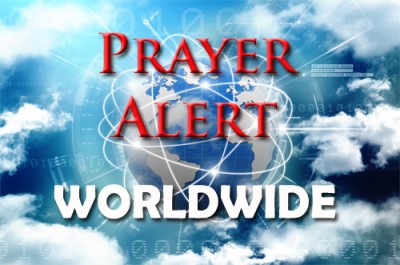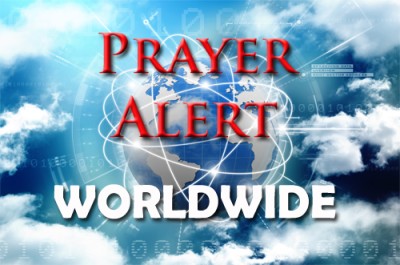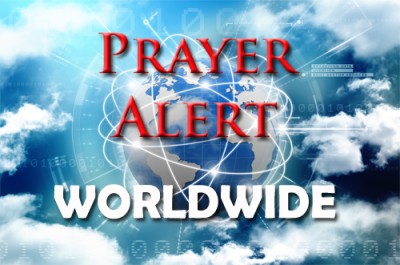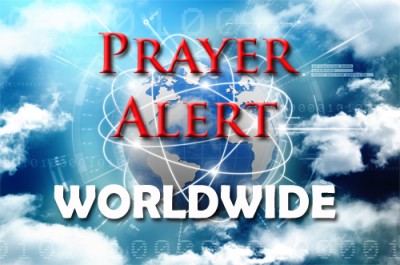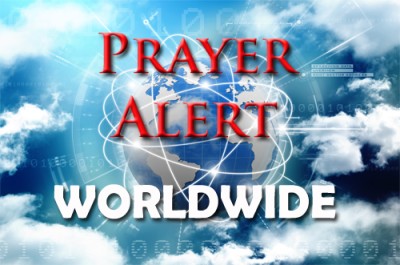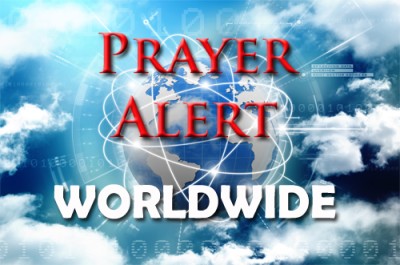India has the second-largest Christian population in Asia, but a recent report states that over 300 attacks on Christians took place in the first nine months of 2021. 169 of them were in four states: BJP-ruled Uttar Pradesh, Congress-ruled Chhattisgarh, tribal-dominated Jharkhand, and BJP-ruled Madhya Pradesh. At least nine states have planned anti-conversion laws, including Chhattisgarh which has emerged as a ‘new laboratory’ for anti-Christian hatred in India. Over 1,000 people recently gathered for a Stop Religious Conversions rally - one in a series of events organised in the garb of anti-conversion protests. Addressing the gathering, a far-right Hindu leader urged the people to ‘arm themselves with axes to teach Christians indulging in conversions a lesson’.
China: digital dictatorship
03 Dec 2021In 2013, China's President Xi Jinping said that ‘whoever controls data has the upper hand’, and ever since he has been on a technological quest to build what some call a blueprint for a digital dictatorship. It would not only allow China's communist government to control huge volumes of data on its own citizens but also of those around the world. Dustin Carmack, who worked as chief of staff for the director of national intelligence, said, ‘You are talking about vast amounts of data they are running between, either in covert or overt cyber-attacks. In other realms, they are sucking up massive amounts of data around the globe that could have nefarious purposes in the long run.’ China has over 415 million surveillance cameras deployed throughout the country. Beijing uses digital currency, social security cards, social credit systems, and online interactions to keep an even closer eye on its citizens. Experts say China wants to be the global leader in exporting its authoritarian surveillance tech to other like-minded regimes.
Iran: nuclear deal talks
03 Dec 2021On 29 November, senior diplomats from Britain, China, France, Germany and Russia met Iranian officials in Vienna to discuss bringing Tehran back into compliance with the 2015 deal known as the Joint Comprehensive Plan of Action, which eased sanctions on Iran in return for curbs on its nuclear programme. The talks could pave the way for the US to rejoin the accord. Israel is making efforts to stop a return to the previous agreement and prevent implementing an interim agreement, a plan the US is considering as a stop-gap if a full agreement cannot be reached. The nuclear talks resumed with upbeat comments despite Tehran's negotiating team demanding that all US and EU sanctions imposed since 2017, including those unrelated to its nuclear programme, be removed.
A disturbing but common feature of modern warfare is incidents of violence against hospitals, patients and healthcare workers. A recent report cites 806 incidents of violence against or obstruction of healthcare in 43 countries and territories in ongoing wars and violent conflicts in 2020, ranging from the bombing of hospitals in Yemen to the abduction of doctors in Nigeria. At least 185 health workers were killed and 117 kidnapped. Attacks continue with impunity, as several states fail to act on global commitments and frameworks intended to safeguard medical professionals saving lives. The nature of conflict now includes more non-state armed groups, but they all attack healthcare. Pray for health workers alone, with very little support, suffering trauma from violence.
Amnesty International, in a new report called They Are Girls Not Mothers, found draconian abortion laws and systemic failure to tackle child sexual violence have forced girls as young as ten years old to carry out full-term pregnancies. The report focuses on sexual violence against children - specifically girls under the age of 14 - who become pregnant and are forced to carry the pregnancy to term. It also analyses the failures of the system in Paraguay to address cases of sexual violence against children and teenagers. Amnesty International said Paraguay is turning its back on girls and teenagers facing unimaginable abuses. Although on paper there is a legal framework to support survivors of sexual violence, in practice they are at the mercy of a chaotic system that does not listen to them or prioritise their well-being. Forcing someone to continue with a pregnancy, particularly when it is the result of rape, can be considered torture.
World: Omicron and politics
03 Dec 2021The Omicron variant has spread globally. Leaders hoping lockdowns and travel bans had ended now face disruptions that could affect their economies and popularity. Italy’s PM Mario Draghi has made economic recovery a cornerstone of his leadership, but he is under fire for enforcing some of the strictest vaccine mandates in Europe. His honeymoon period could be derailed if further lockdowns or disruptions send the economy into a nose-dive. Inflation and supply-chain chaos are headaches for America. Uncertainty over Omicron threatens to make things worse after a wobbly economy and a shambolic departure of troops from Afghanistan. Biden’s handling of the pandemic previously inspired voter confidence but has now caused his popularity to drop. It is unlikely that he will take risks that could harm the US economy. China’s president is pursuing an increasingly elusive zero Covid strategy. If Omicron is more transmissible than previous variants, China's leadership could be questioned domestically.
Sudan: answered prayer - coup ended
25 Nov 2021On 28 October you prayed for Sudan to find a workable political system so that coups and coup attempts cease. On 21 November Sudan's ousted prime minister Abdalla Hamdok was reinstated and released from house arrest. All political detainees were also released as part of a new agreement between the military, civilian leaders and ex-rebel groups. The coup had sparked weeks of mass protests with many deaths. Mr Hamdok agreed to the terms to avoid further bloodshed. The group of mediators, which included academics, journalists and politicians, released a statement outlining the terms of the agreement, which said the rules governing the transition towards democracy would be restored.
UK to label Hamas a terror organisation
25 Nov 2021The British government will designate Hamas as a terrorist organisation, joining the USA, Canada and the EU. Hamas will be banned under the UK’s Terrorism Act of 2000, which would make it illegal to meet with Hamas members, fly its ,or wear clothing indicating support for the group. Supporters could face up to 14 years in prison or a fine. The approval of the ban in parliament is expected within a week. Priti Patel said, ‘Hamas is fundamentally and rabidly antisemitic. Antisemitism is an enduring evil which I will never tolerate.’ Jewish people routinely feel unsafe - at school, in the streets, when they worship, in their homes, and online. This step will strengthen the case against anyone who waves a Hamas flag in the UK. See
